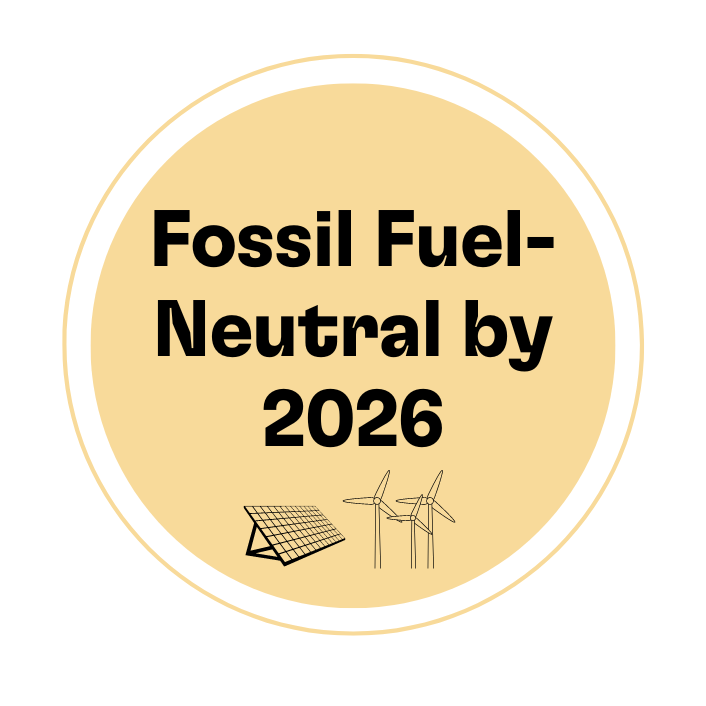Harvard’s Path to Fossil Fuel-Neutral

Why Fossil Fuel-Neutral?
As a bridge to reach Goal Zero, Harvard has a short-term objective to be Fossil Fuel-Neutral by the end of 2026. This means Harvard will zero out campus emissions (Scope 1 and Scope 2), in addition to eliminating fossil fuels on our campus.
The faculty-led Climate Change Task Force that recommended Harvard’s climate goals recognized it would take many years to eliminate fossil fuel emissions from our own district energy, buildings, and vehicles. Yet, Harvard has an urgent responsibility to help cut global greenhouse gases (GHG) emissions and air pollution from fossil fuels.
To achieve fossil fuel-neutral, Harvard is funding projects that zero out greenhouse gas emissions and the health impacts of fossil fuels, such as those caused by air pollution, to create positive benefits for human health and ecosystems.
The Harvard Presidential Committee on Sustainability (PCS) charged a faculty-led Subcommittee to prepare a recommendations report with clear, key criteria of how to meet the goal:
- Address the full impact of fossil fuels by measuring and offsetting GHG/carbon emissions and estimated health impacts of air pollutants.
- Build a diverse, credible and cost-conscious portfolio of carbon credit and renewable electricity projects that eliminate the usage of fossil fuel energy sources; include local, national, and global projects; include health benefits; allow experimentation, piloting, and studies to influence the markets; and evaluate the cost/benefit of all project options.
- Share findings, advance applicable research, and help improve energy and carbon markets generally.
Harvard Co-Leads Renewable Energy Consortium
In a significant step on the path to achieving its climate goals, Harvard announced the formation of a first-of-its-kind renewable energy collaboration of higher education, healthcare, and cultural institutions, as well as state and local government entities, led by Harvard, Mass General Brigham (MGB), and the Massachusetts Institute of Technology (MIT).
The Consortium signed virtual power purchasing agreements (VPPAs) that enabled the development of new utility-scale, solar and wind projects in carbon-intensive electricity grids, generating enough clean power for the electricity use of ~130,000 U.S. homes annually.

Harvard’s Renewable Energy Projects: Wind and Solar
Harvard is committed to decarbonizing its campus and supporting the transition to clean energy sources. Two new large renewable electricity projects from the Consortium for Climate Solutions, combined with ongoing renewable electricity procurement in New England, provide Harvard with the equivalent of 100 percent of its electricity from renewable sources, fulfilling a key component of the University’s goal to be Fossil Fuel-Neutral by 2026.

A Holistic Approach
Understanding the Health Impacts of Fossil Fuels
Focusing on addressing the wider harmful impacts of fossil fuels, rather than only greenhouse gas emissions, enables Harvard to drive progress across climate, health, and wellbeing for all.

Harvard’s Path to Fossil Fuel-Free by 2050
In February 2018, Harvard set a goal to be Fossil Fuel-Free by 2050. Known as Goal Zero, this target is focused on completely eliminating the use of fossil fuels in Harvard’s buildings and vehicles, as well as the negative health impacts they cause. Focusing on addressing the wider, harmful impacts of fossil fuels, rather than only greenhouse gas (GHG) emissions, enables Harvard to drive progress on climate, health, and wellbeing for all.

